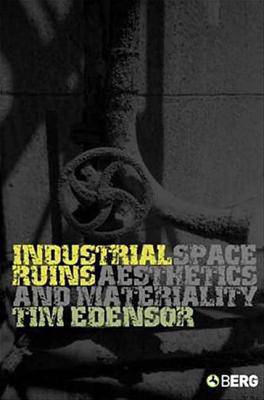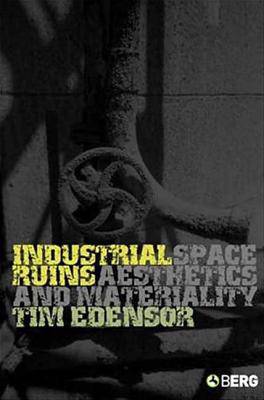
Je cadeautjes zeker op tijd in huis hebben voor de feestdagen? Kom langs in onze winkels en vind het perfecte geschenk!
- Afhalen na 1 uur in een winkel met voorraad
- Gratis thuislevering in België vanaf € 30
- Ruim aanbod met 7 miljoen producten
Je cadeautjes zeker op tijd in huis hebben voor de feestdagen? Kom langs in onze winkels en vind het perfecte geschenk!
- Afhalen na 1 uur in een winkel met voorraad
- Gratis thuislevering in België vanaf € 30
- Ruim aanbod met 7 miljoen producten
Zoeken
€ 271,45
+ 542 punten
Uitvoering
Omschrijving
Across Western cities, there is an increasing obsession with producing manicured landscapes. Standing in contrast to these aesthetically and socially regulated spaces are the neglected sites of industrial ruins, places on the margin which accommodate transgressive and playful activities. Providing a different aesthetic to the over-coded, over-designed spaces of the city, ruins evoke an aesthetics of disorder, surprise and sensuality, offering ghostly glimpses into the past and a tactile encounter with space and materiality. Tim Edensor highlights the danger of eradicating such evocative urban sites through policies that privilege homogeneous new developments. It is precisely their fragmentary nature and lack of fixed meaning that render ruins deeply meaningful. They blur boundaries between rural and urban, past and present and are intimately tied to memory, desire and a sense of place. Stunningly illustrated throughout, this book celebrates industrial ruins and reveals what they can tell us about ourselves and our past.
Specificaties
Betrokkenen
- Auteur(s):
- Uitgeverij:
Inhoud
- Aantal bladzijden:
- 208
- Taal:
- Engels
Eigenschappen
- Productcode (EAN):
- 9781845200763
- Verschijningsdatum:
- 1/05/2005
- Uitvoering:
- Hardcover
- Formaat:
- Genaaid
- Afmetingen:
- 156 mm x 234 mm
- Gewicht:
- 453 g

Alleen bij Standaard Boekhandel
+ 542 punten op je klantenkaart van Standaard Boekhandel
Beoordelingen
We publiceren alleen reviews die voldoen aan de voorwaarden voor reviews. Bekijk onze voorwaarden voor reviews.









